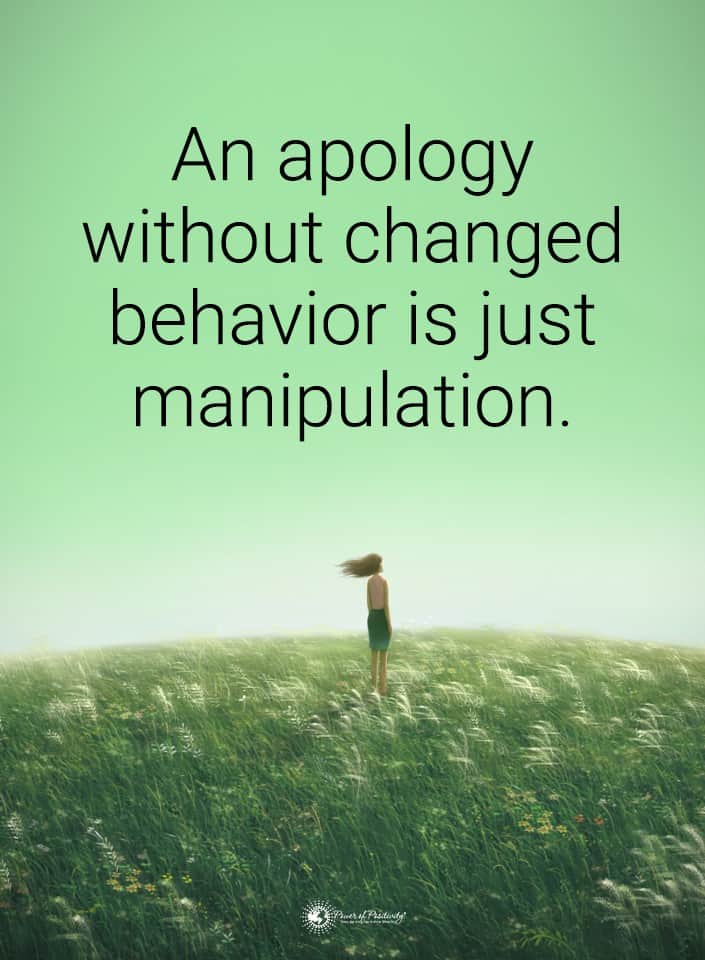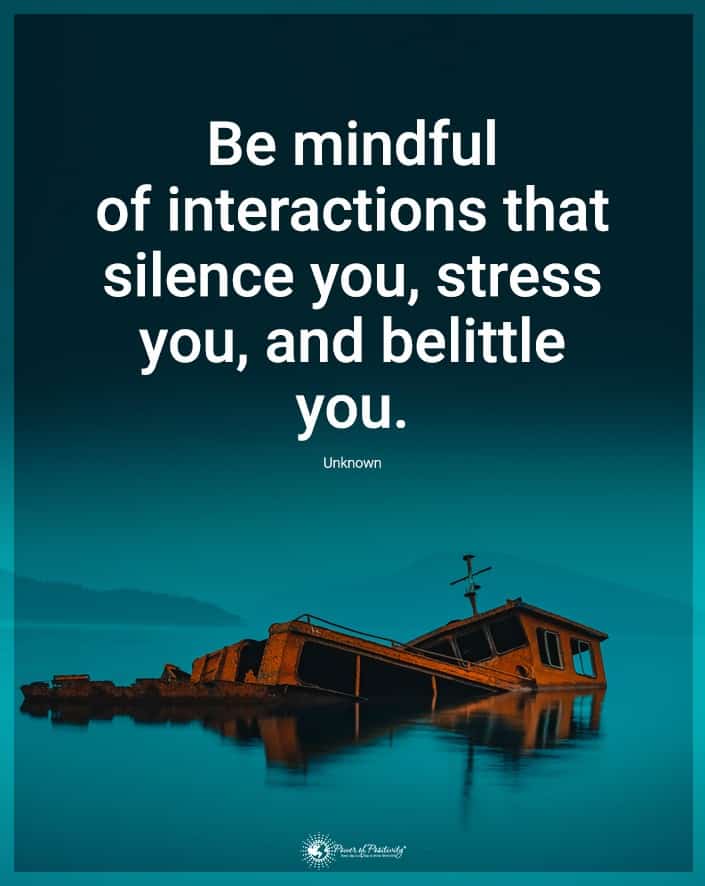Why is it that some people refuse to express regret even when they know they’ve made a mistake? Even if a person is wrong, why can’t they admit their wrongdoing, and do they matter? Does this person have a stubborn streak that causes them to refute guilt, or are they psychologically unable to take responsibility for their actions?
What’s so hard with apologizing to someone when you’ve done wrong? Well, you should know that there are times in your life when even the most conscientious folks will refuse to say, I’m sorry. It usually boils down to a few simple reasons.
Eight Reasons Why People Refuse to Apologize
There are many reasons why people can’t admit fault, but you will be surprised that it often has to do with their childhood. Yes, everyone has an inner child inside them, and for many, it’s a broken version of themselves.
While it seems that this issue is cut and dry, it’s much more complex than you think. Here are the most common reasons you people refuse to offer an apology.
 1. They Don’t Feel It Will Help the Relationship
1. They Don’t Feel It Will Help the Relationship
Some folks feel there’s no need to apologize to some people. Assume that you snapped at your sister because she kept calling you when trying to complete an important homework assignment. Since you have a challenging relationship with her anyway, you didn’t bother to ask for forgiveness for acting out of tern.
You probably felt justified because she deserved the tongue lashing, but you also know that saying that you’re sorry will not help the relationship between you two. Why put yourself in a vulnerable position if it isn’t going to change things? She might not even accept your apology, so in this instance, you feel that you were warranted in your actions, and you wouldn’t dare say you’re sorry.
2. It Invokes Feelings of Shame and Regret
While you may come across to the world as someone tough and an individual that refuses to back down no matter what, it’s not strength that you’re displaying. You’re showing how very weak you are on the inside. Have you ever met anyone that could never admit their wrongdoing no matter what the circumstances?
These folks are incapable of offering an apology, and it’s because it feels very psychologically threatening to them. If they say that they’re sorry for their actions, they must admit that they’ve hurt someone else. An admission like this would make them feel intense shame, and they can’t handle it psychologically.
So, rather than do the right thing and admit guilt, they will deny it till their dying breath. The shame and regret are just too much for some people to handle, and this certainly does have something to do with the gravity of the offense too. It might be easier to admit to your spouse that you pulled out in front of traffic and dented the car rather than to say you cheated.
3. They’ve Fragile Egos
Wouldn’t it be nice if everyone had great self-esteem and didn’t suffer from ego issues? Sadly, many folks have a low sense of self-worth that affects every decision in their life. If they were to admit they were wrong, then it’s a horrible blow to their already fragile sense of self.
Inside, their defense mechanism kicks into overdrive, and they will try to dispute the facts and put the blame off someone else rather than giving an apology. They feel if they deny the facts of the matter, turn it around on someone else, or if they state that circumstances are to blame, they will feel empowered by the situation and not weakened.
The problem is that you interpret this fragile nature as strength on the outside, but it’s nothing of the sort. It takes a stronger person to stand up and admit they’re wrong rather than to push the guilt of others. This trait is ubiquitous in someone with a narcissistic personality disorder.
According to the National Library of Medicine, a person with NPD often appears to have a self-centric orientation, but it’s a façade. These folks are very fragile inside, so they will push the blame and guilt onto someone else, as it’s the only way they can cope.
3. They Fear Retaliation
Retaliation is another big issue when it comes to admitting fault. Assume you stole $50 out of the cash register at work when times were tough. You knew it was wrong, and you couldn’t even believe you stooped to such a level, but you did it.
However, you know that the entire team catches the blame when you’re the guilty party. Instead of admitting what you did was wrong, you would instead the whole team take the hit. You know they can’t fire all of you, but if they find out that you’re the one who stole, then you will be fired.
In this instance, you know you need your job as your finances are already a mess. So, you are afraid of the retaliation that might come about if you admit fault. This behavior is commonly observed in people who are victims of domestic violence and other harmful situations.
4. They Fear Losing Someone By Their Admission
Many people are unfaithful to their spouses, and it’s nothing abnormal these days. In fact, according to a study, the past year proved that around 25 percent of all marriages struggled with infidelity. It was a challenging year, and the stress of everything only made matters worse.
However, it’s a fair question to wonder how many folks in that 25 percent told their spouse and made an apology for their actions? Saying I’m sorry isn’t the part that they fear, but it’s the thought of losing someone that may come from them admitting their fault. Some individuals might view this as a game-over situation, so the other spouse will avoid telling them because they’re afraid of the consequences.
It doesn’t have to be an affair, but many people fear they may lose a person if they’re honest and confess to what they’ve done and offer an apology. So, they would rather deny any wrongdoing.
 5. They’re Stubborn
5. They’re Stubborn
Some folks are just plain stubborn. It doesn’t matter if they know they’re wrong and you know they’re guilty too, as nothing will make them admit fault. They don’t like anyone to push them into a corner, so they would instead argue about the matter than admit fault and move on.
You will be able to identify this person as their stubborn nature affects more than just their willingness to say they’re sorry.
6. They Hate Not Being Perfect
Some individuals had brutal childhoods growing up, and they learned that you must be strong and never admit guilt. The price to pay for these individuals was great when they did wrong, and these thought processes followed them over into their adult life. They don’t like the feeling that it gives when they’re not perfect, though they know on some level that no one has achieved perfection.
As a child, they might have received corporal punishment when they did something wrong, so as a grownup, they will avoid anything that will put them in a bad light. It just brings up too much bad stuff.
7. They’re Embarrassed
Part of the reason why some folks won’t say I’m sorry is that an apology will bring great shame. What if your child broke your favorite vase, but they didn’t tell you because they were afraid it would make you sad and have bad feelings towards them? They don’t want you mad at them, and they’re embarrassed that they were running in the house, which they know is a rule they broke.
This little child doesn’t want to hurt you, but they are embarrassed by their actions. So, it’s easy to assume why they won’t admit they’re wrong. However, even as adults, there are times you’re embarrassed by the things you’ve done and spoken.
8. It’s a Threat to their Image
You walk through the world with the belief that everyone is essentially a good person. You keep this belief until they give you a reason to think anything different. However, when you’re the one that’s in the wrong, you may see admitting a transgression as a threat to your image.
What if you held a high position in a corporation or were a pastor or some other spiritual leader? Admitting your wrong can have dramatic impacts, or so you believe. However, in many instances, it just shows how human you are, and you can fall and stumble just like the next person.
 Final Thoughts on Why Some Folks Won’t Offer an Apology
Final Thoughts on Why Some Folks Won’t Offer an Apology
Every person you see is just an outer shell that’s hiding a lifetime of secrets. While this individual may appear put together and perfect to the outside world, their inside reflects a different story. What’s happened to you in your past will mold and develop your character for the future.
Some people feel an apology is too painful because it makes them feel less than or others will look down on them. It can have a powerful effect on your self-esteem, and some would rather lie than tell the truth that they’ve done wrong. However, as the old saying goes, the fact always sets you free.
Even though it may sting a bit initially, it’s always better to be honest, admit what you’ve done wrong, and move forward.
The post 8 Reasons Why People Don’t Give An Apology appeared first on Power of Positivity: Positive Thinking & Attitude.







 1. They Don’t Feel It Will Help the Relationship
1. They Don’t Feel It Will Help the Relationship 5. They’re Stubborn
5. They’re Stubborn Final Thoughts on Why Some Folks Won’t Offer an Apology
Final Thoughts on Why Some Folks Won’t Offer an Apology